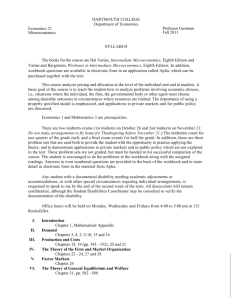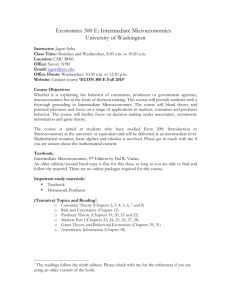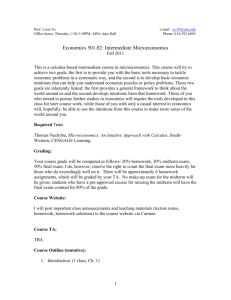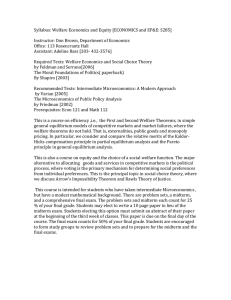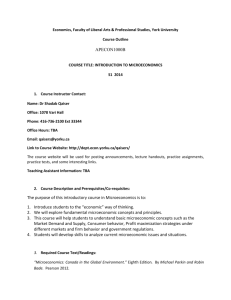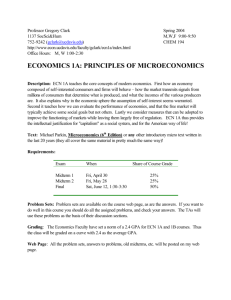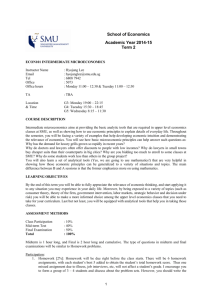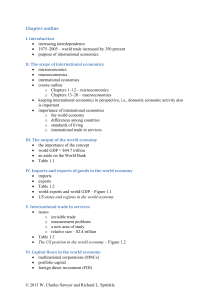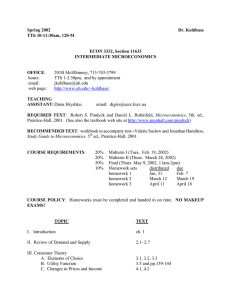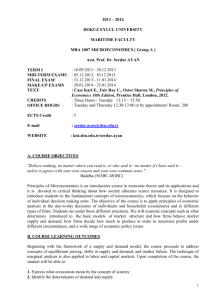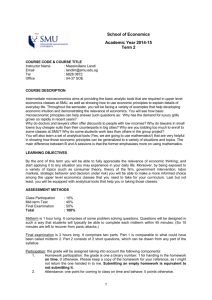ECON 300D: Intermediate Microeconomics
advertisement
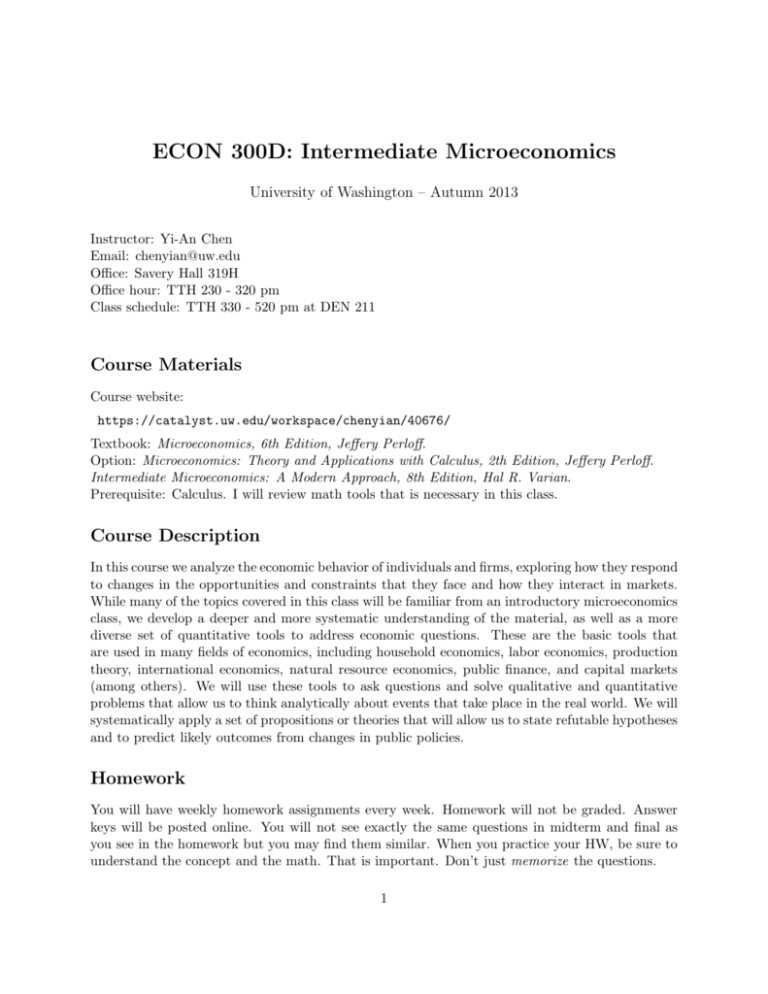
ECON 300D: Intermediate Microeconomics University of Washington – Autumn 2013 Instructor: Yi-An Chen Email: chenyian@uw.edu Office: Savery Hall 319H Office hour: TTH 230 - 320 pm Class schedule: TTH 330 - 520 pm at DEN 211 Course Materials Course website: https://catalyst.uw.edu/workspace/chenyian/40676/ Textbook: Microeconomics, 6th Edition, Jeffery Perloff. Option: Microeconomics: Theory and Applications with Calculus, 2th Edition, Jeffery Perloff. Intermediate Microeconomics: A Modern Approach, 8th Edition, Hal R. Varian. Prerequisite: Calculus. I will review math tools that is necessary in this class. Course Description In this course we analyze the economic behavior of individuals and firms, exploring how they respond to changes in the opportunities and constraints that they face and how they interact in markets. While many of the topics covered in this class will be familiar from an introductory microeconomics class, we develop a deeper and more systematic understanding of the material, as well as a more diverse set of quantitative tools to address economic questions. These are the basic tools that are used in many fields of economics, including household economics, labor economics, production theory, international economics, natural resource economics, public finance, and capital markets (among others). We will use these tools to ask questions and solve qualitative and quantitative problems that allow us to think analytically about events that take place in the real world. We will systematically apply a set of propositions or theories that will allow us to state refutable hypotheses and to predict likely outcomes from changes in public policies. Homework You will have weekly homework assignments every week. Homework will not be graded. Answer keys will be posted online. You will not see exactly the same questions in midterm and final as you see in the homework but you may find them similar. When you practice your HW, be sure to understand the concept and the math. That is important. Don’t just memorize the questions. 1 Grading • Midterm (45%): The midterm is in the classroom on Tuesday, Novermber 5th. • Final (55%): The test will be cumulative but will emphasize material presented after the midterm. It is the same day shown up in MyUW on Thursday, December 12th. Class Grades The median grade for this class will be around 3.0. Final grades will be determined at the end of class but a general benchmark for how you are doing will be the class median the exams. In general, a score on exam that is around the median would correspond to a grade of around a 2.9 or 3.0 on a 4.0 scale. This grading policy is dictated by the economics department. The overall grades below some certain points will considered failed in this class. How to success in this class 1. I will provide tools and economic interpretation in the class. Communication between you and me is important. Always raise your hands high when you feel unclear about anything. (It might take a while to get used to my accent.) 2. Do your homework. We are experiencing budget cut so I do not have people to grade your homework. However, experience tells me successful students always take homeworks very seriously. When you have trouble in your homework, email me, but I might not respond you immediately or ask you to come to office hour. Sometimes I will talk about some HW questions in class. 3. Bring your question to office hour but do not bug me. Taking initiative is important. I like students coming to me with questions but not “Would you please explain them all. I know nothing about it.” Learning new knowledge is sometimes frustrating but I want you to struggle it first, then come to me. It is the most efficient way to learn. 4. Complaining does not help. If you have trouble learning, double check whether you fulfill my guideline above. In the past, unsuccessful students are the ones who complain the most, either they do not work hard enough or they have inefficient way to study. Take responsibility for your grades. 5. Tune your attitude right. This is a hard and challenging class. Some people are slow learners. It is normal to fail at first time and try it again. Tentative Reading Schedule • Supply and Demand (Chapters 2 and 3): Week 1 • Consumer Theory (Chapters 4 and 5) : Week 2, 3 • Production Theory and Cost Functions (Chapters 6 and 7) : Week 4, 5 2 • Competitive Firms and Markets (Chapters 8 ) : Week 6 • General Equilibrium (Chapter 10) : Week 7 • Monopoly (Chapter 11) : Week 8 • Game Theory (Chapter 14) : Week 9 • Duopoly (Chapter 13) : Week 10 3
